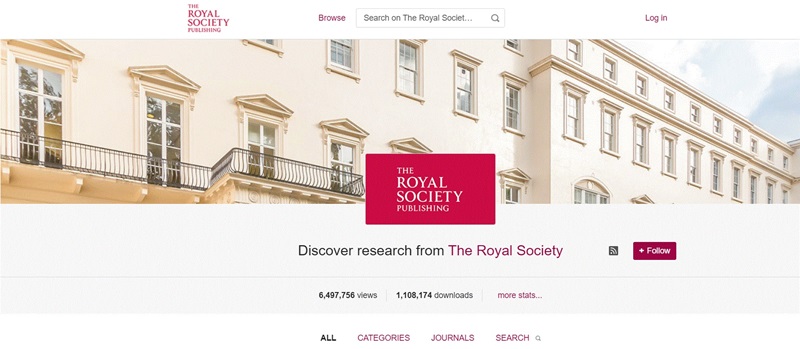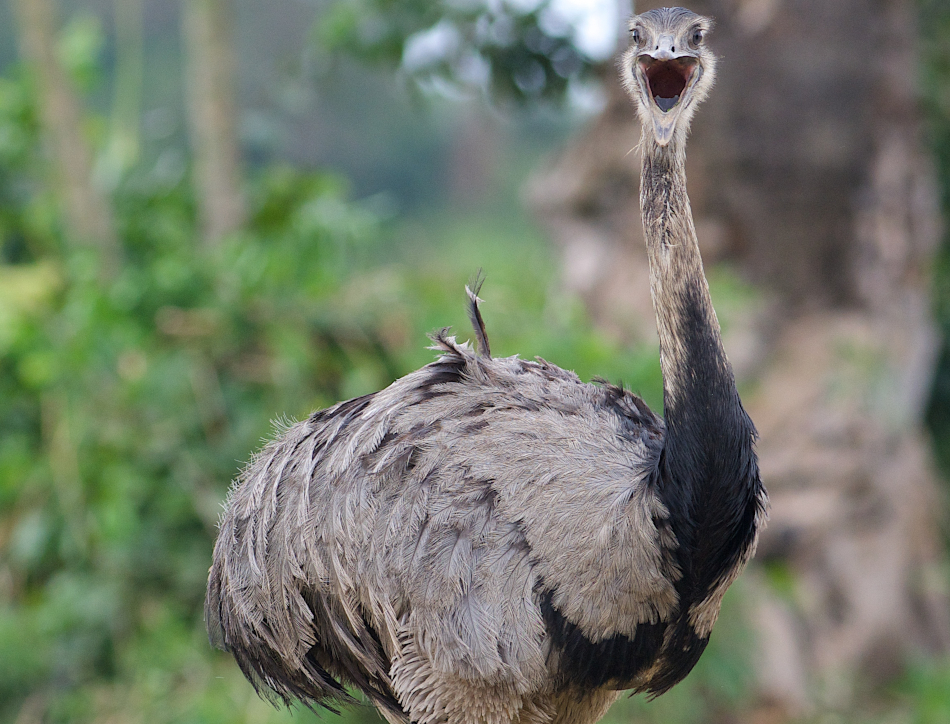Why publish with us?
Support the scientific community
Royal Society Publishing is a not-for-profit society publisher that is dedicated to promoting excellence in science.
350 years of research
Join the authorship history of the world's longest-running scientific publisher, alongside icons such as Isaac Newton, Alexander Fleming, Alan Turing, Stephen Hawking and Dorothy Hodgkin.
High visibility and impact
Our journals continue to achieve high levels of citations and downloads year on year.
Published articles benefit from promotion by a dedicated press and marketing service. Royal Society journal content is regularly highlighted in the Guardian, BBC, New Scientist, Scientific American, Nature and Science as well as in a range of other print, online and broadcast media. Articles are also promoted across the social media channels Twitter, Facebook, Researcher, WeChat and ResearchGate. Our journals are included in Google Scholar, PubMed, Scopus, Web of Science and other indexing and abstracting services, enhancing discoverability and dissemination.
We also promote our journals at numerous international scientific conferences throughout the year.
Rigorous review from experts in your field
Every manuscript receives rigorous and constructive peer review overseen by practising scientists who are world-class experts in their respective fields.
Our editorial boards are each chaired by a Fellow of the Royal Society and made up of distinguished scientists in relevant disciplines. We are actively increasing diversity of editorial boards.
Open access options
We support open access publishing and open science as part of our commitment to the widest possible dissemination of research. Two of our journals, Royal Society Open Science and Open Biology, are fully open access, while all our other journals provide optional open access compliant with funder mandates (such as Plan S and OSTP).
Researchers based in over 100 low- and middle-income countries and territories are supported by our Royal Society Open Access Equity scheme with automatic APC waivers for open access publication.
If you are the corresponding author from an institution signed up to one of our Read & Publish agreements, all open access fees and invoices are automatically covered by your library. To check your eligibility, see the full list of members.
If your institution does not offer Read & Publish, it might belong to one of our Open Access Membership Programmes where you can benefit from discounts of up to 25% on article processing charges.
Authors publishing in our fully open access journals who lack funds to cover the APC may be eligible for discretionary waivers.
Rapid, high-quality publication
Our authors value rapid publication. Following peer review, your submitted article will receive a first decision in an average of 3–6 weeks. Moreover, under our continuous publication model your paper can be fully cited from the moment it’s published online.
Our authors also appreciate retention of copyright, our high copy-editing and production standards and no charge for essential colour.
Deposit of open data
For all its science journals, the Society will cover the cost ($150) of depositing data with Dryad (a repository for all scientific disciplines).
In addition, we deposit all supplementary material (including video) into the Figshare repository on the author's behalf. Content on this dedicated channel is fully searchable and citable.

Ease of submission and author care
When you submit a paper to one of our journals, we aim to make the process as simple and as straightforward as possible. We always welcome feedback and, if we can, try to act on it. A recent example is the introduction of format-free initial submission for all journals apart from Biology Letters and Proceedings B. We partner with language editing services which provide professional editing of manuscripts prior to submission. Additional support and guidance is provided for early career researchers through our ECR resource hub.
Transfers
If your article is declined by Proceedings A, Interface, Proceedings B, Biology Letters or Open Biology on the basis of scope or competition for space, editors may provide the opportunity to transfer the manuscript and peer review reports to another Royal Society journal. The majority of transfers are to Royal Society Open Science which considers high-quality, scientifically rigorous original research across the entire range of science.





